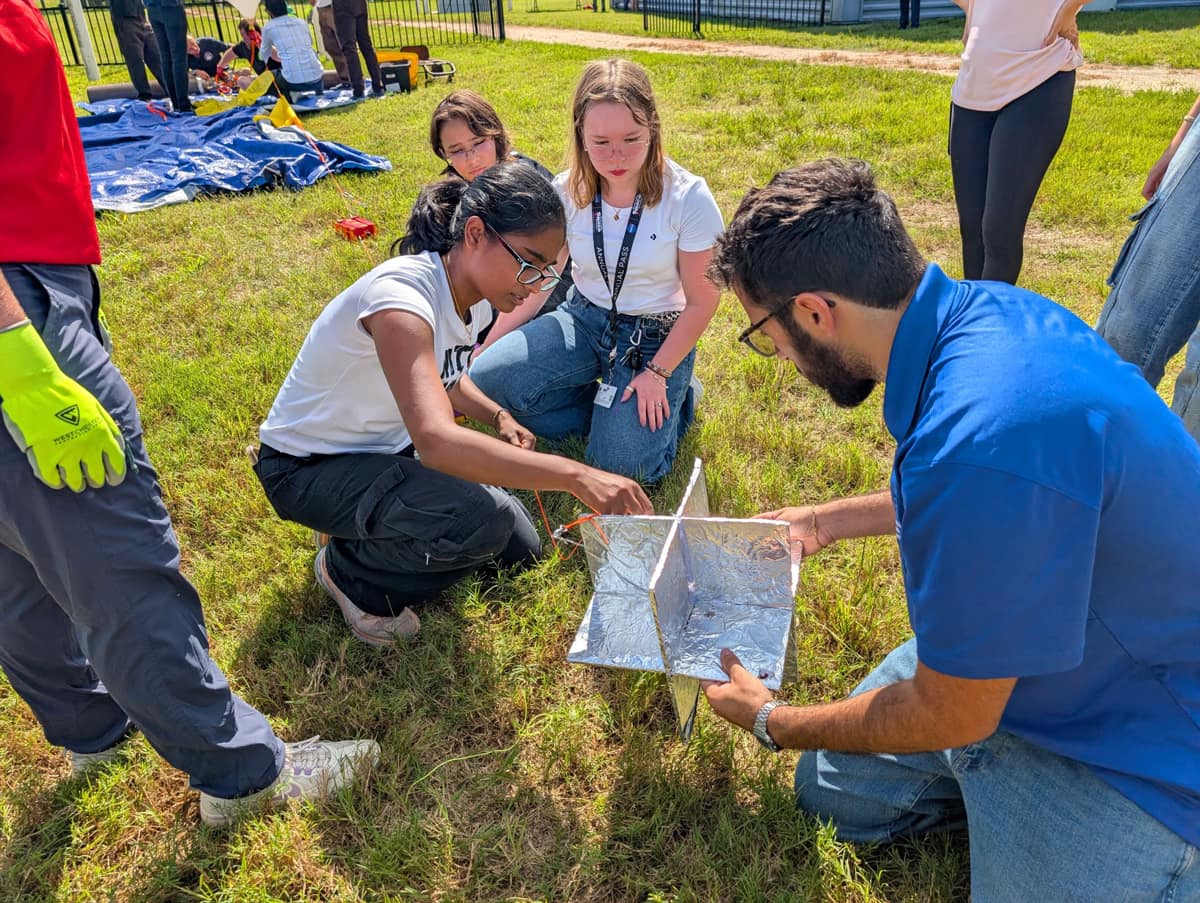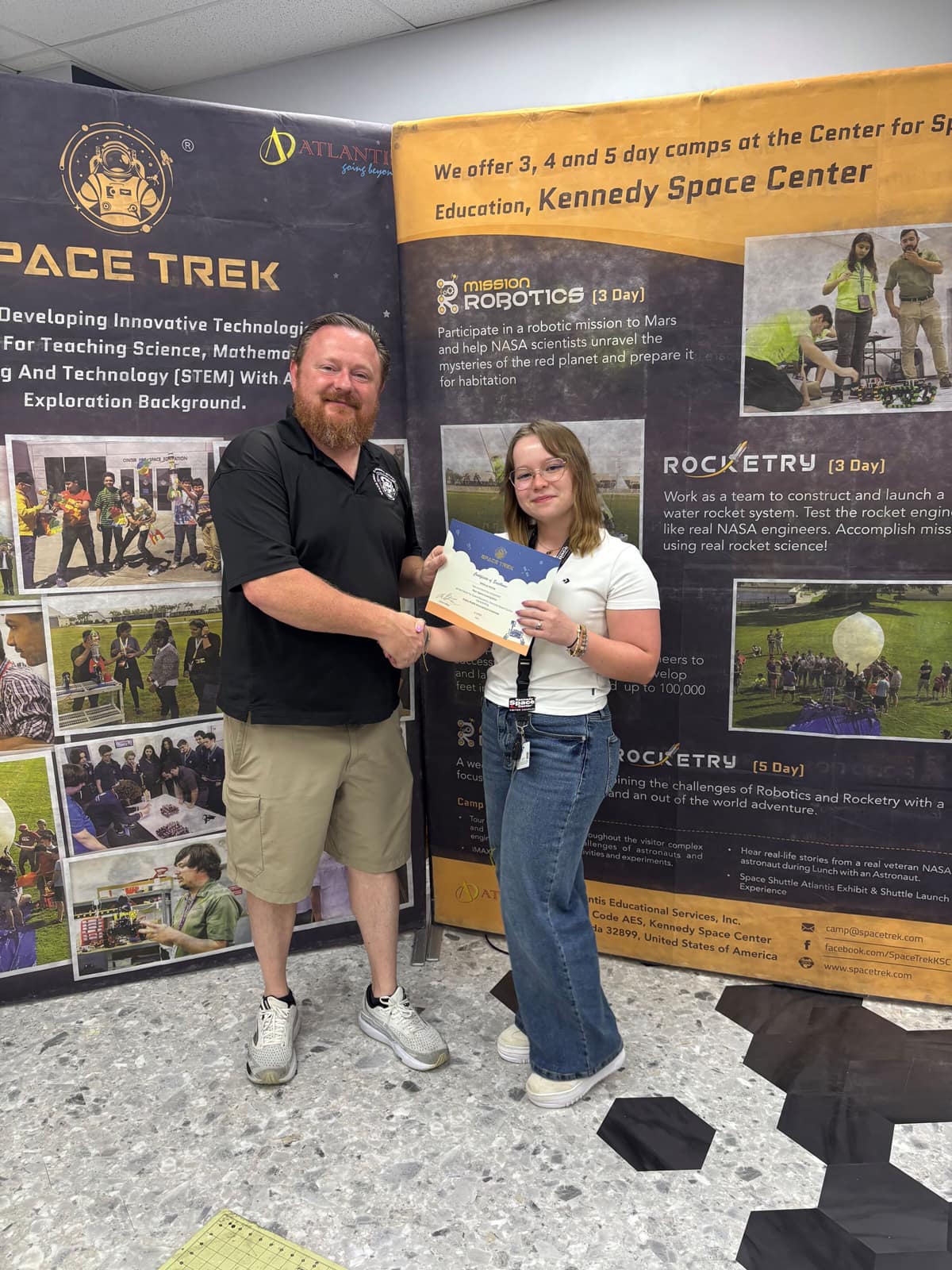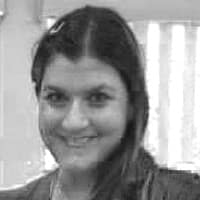Space Trek Academy Launches Embry-Riddle Student’s Career Aspirations

Embry-Riddle Aeronautical University student Whitney Melick’s dream to build and launch her own projects into space got closer to reality after attending the Space Trek Academy at NASA’s Kennedy Space Center.

Melick receives a congratulations from Andrew Gafford, who is a research and development engineer at the Space Trek Academy. (Photo: Embry-Riddle/Whitney Melick)The sophomore Aerospace Engineering student spent four days in August at the Center for Space Education at Kennedy Space Center Visitor Complex in Merritt Island, Florida. There, she worked with more than a dozen college students to successfully launch and retrieve a weather balloon that carried a payload up to an altitude of 100,000 feet into the upper atmosphere.
“It was an amazing experience,” said Melick, who is from Bentonville, Arkansas. “The whole idea of the academy is that it is very student-led. We did all the planning, coding and construction of the weather balloon project ourselves.”
The Space Trek Academy, sponsored by NASA Florida Space Grant Consortium, teaches students about meteorology, telemetry, payload integration and different variables that NASA must consider during missions.
"The Space Trek Academy provides a real-world, fast-paced, hands-on experience for the students. It puts them on an interdisciplinary team of students, and they have limited time to build, test and fly their experiments,” said Andrew Gafford, research and development engineer at the Space Trek Academy. “This approach highlights real-world challenges and is often the first time students are exposed to them.”
For the weather balloon, students designed experiments included in the weather balloon’s payload. A flight computer with various sensors also recorded humidity, pressure, temperature, velocity and altitude as the balloon ascended and descended.
“I ended up leading our carbon dioxide experiment and planned everything out for that,” said Melick. “I also was nominated to be the team’s flight director, which is the lead position.”

Melick and her team at the four-day Space Trek Academy. (Photo: Embry-Riddle/Whitney Melick)
The team had to regularly give project updates and meet various deadlines, which Melick said helped her gain valuable leadership, teambuilding and public speaking skills. Plus, she improved her coding and soldering skills while working on the project.
She credited one of her professors, Dr. Joanne L. DeTore, with connecting her to the opportunity and encouraging her to apply for the Space Trek Academy.
“I knew of Whitney’s dream to work in the aerospace industry, and I was thrilled when she applied and was successful,” said DeTore, associate professor of Humanities and Communication and undergraduate program coordinator for Interdisciplinary Studies. “She is brilliant, driven to excel, and the kind of student that makes a class better with her enthusiasm, creativity and amazing insights in class discussions.”
Melick’s goal is to earn her bachelor’s and master’s degrees in Aerospace Engineering and then pursue a career at NASA, or a commercial space or aerospace engineering company. Participating in the Space Trek Academy and connecting with the NASA Florida Space Grant Consortium introduced her to professionals in the field and made her aware of other programs, internships and career opportunities, she said.
“The Space Trek Academy gave me experience outside of the classroom that helped me develop personally and professionally,” said Melick. “Having the chance to be a part of this now will help me in the future.”

 Melanie Stawicki Azam
Melanie Stawicki Azam